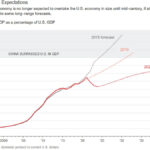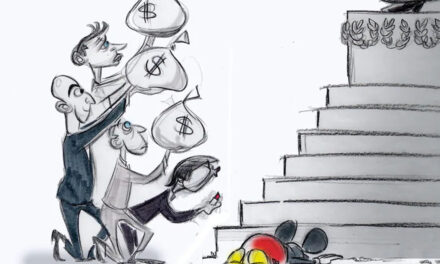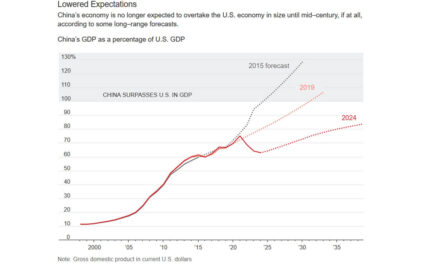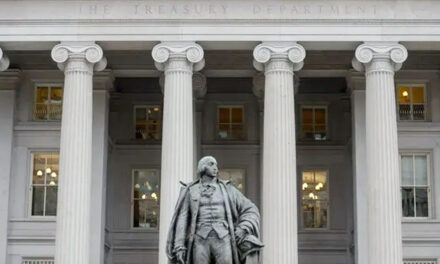
xx Day 20 – Instability in the Middle East – a Breakdown of Crises
OPEC, a 14-member group of oil-rich nations in the Middle East, produces 40% of the world’s crude. Analysts worry that the ongoing violence in many of these countries will disrupt global oil flow.
“The Middle East is doomed to political instability for the foreseeable future,” reports The Observer. The primary reasons for this instability are 1) artificial borders and 2) the decay of Islam.
Unlike Europe, there are painfully few organic nation states in the Middle East. With the exception of Egypt and Iran, today’s Middle Eastern countries are leftover creations of the European powers that once governed them. Take Iraq, for example, which was cobbled together from three separate groups that had previously been governed as separate provinces by the Turks. Iraq’s citizens lack common desires, interests, and beliefs. The result is never-ending violence.
On top of that you have Al Ghazali’s “anti rationalism,” a poisonous philosophy introduced in the 12th century that has since infested and shackled the Islamic religion, dooming it to a future of scientific and cultural ossification.
Iraq
Oil traders are carefully watching Iraq this summer, where armed militant groups threaten oil companies in the nation’s southeastern region.
Iraq (OPEC’s second-largest producer) has enjoyed surprisingly consistent oil production during the past three years because most of the nation’s oil is produced in the south – far from the fighting with ISIS.
But now, recent tribal violence in the south threatens the oil-rich Basra regions. Last winter, these militants shot one oil worker and murdered two others.
The Iraqi government embarrassed itself in January when it failed to quell this violence with ground troops and tanks.
“The failure of the central government to disarm renegade militants and soothe tribal tensions at the beginning of the year has underlined the limits of Baghdad’s influence in the region,” reports Aljazeera.
The situation is expected to grow worse as budget issues limit Baghdad’s ability to provide citizens with basic necessities like power and water. Analysts fear this will lead to a serious disruption in the nation’s oil exports, which represent Iraq’s biggest source of income.
Saudi Arabia
Saudi Arabia has become involved in the Syrian Civil War, the fight against ISIS, and the Yemeni Civil War. In support of Yemeni President Abed Rabbo Mansour Hadi, Saudi Arabia and its allies have been fighting Houthi rebels since March 2015.

Saudi Arabia has also been conducting air strikes against ISIS in Syria, but in February offered to send ground troops. The nation seeks to remove Bashar al-Assad from power and to expunge the rumor that Saudi Arabia is a breeding ground for terrorists.
It seems Saudi Arabia’s war on Yemen is about to collapse. The UAE has threatened to withdraw all troops from the coalition, and the UN blames Saudi Arabia for numerous civilian deaths in Yemen. Human rights groups are blasting the United States for providing weapons to Saudi Arabia.
“The coalition’s repeated use of cluster bombs in the middle of a crowded city suggests an intent to harm civilians, which is a war crime,” argues Human Rights Watch spokesman Steve Goose. “These outrageous attacks show that the coalition seems less concerned than ever about sparing civilians from war’s horrors.”
So far, the Obama Administration has sold an estimated $111 billion worth of weapons to the Saudis.
Syria
Prolonged civil war has turned Syria into a black hole, displacing millions civilians and aiding the rise of the Islamic State. Russia’s entrance into the Syrian civil war last fall was a turning point, but the conflict is far from over.
Syria has been a major player in the Middle East since WWII, but has now devolved into an assortment of tiny fiefs controlled by various powers including the Assad regime, Russia, Iran, and Hezbollah. The collapse of this nation poses a serious threat to the stability of the entire region.
Peace negotiations (Geneva III) in February have decreased violence by nearly 90%, but an agreement has yet to be reached.
“We may be moving out of Phase I of the war, where all sides sought decisive victory, and into Phase II, where the regime and major rebel factions reach an accord. This could be an informal understanding to direct their fire against ISIS and al-Nusra, or it may include the beginnings of a formal deal to devolve political power to the regional or local level and possibly ease Assad out of office. Eventually, if ISIS and al-Nusra are pushed back, we may enter Phase III, or the stabilization of Syria in the face of a continued terrorist campaign. This will be the truly hard part—and will require a major international commitment,” reports The Atlantic.
Other Members of OPEC
Other members are also in danger of destabilizing. Nigeria, a country of 180 million is having tremendous problems with Boko Haram, an Islamist terrorist group that is terrorizing the rural parts of the country, kidnappiings, murders, and more.

Iran is a major sponsor of terror and may soon be a nuclear power. Other countries are vowing they will not become a nuclear power. Ever.
Libya is chaos personified, large parts are controlled by radical Islamists. Its stability is and will continue to be questionable.
Over the last 10 years, Venezuela has converted its economy to a near socialist entity, supported by oil. Now that oil prices have dropped, the Venezuelan economy has tanked, and the country is in crisis.
Kuwait, UAE, Gabon, Algeria, Angola and Indonesia are perhaps stable members of OPEC, but weak enough socially and militarily that instabilities could arise. Qatar seems to be constantly on the edge.
OPEC’s influence in large part is a product of the willingness in its member countries to cooperate as a block. But low prices mean hard times for the members, and desperately low prices means every country for itself. And lack of cooperation means no power.


























Joe Gilbertson: where are you going with these threats? My free speech is facing intimidation, sometimes physical threats. Is this…
NOT BUSTED. You didn't have to say it. That is what I meant in the above post from me. But…
Just another ruse for taking jabs at Biden through alleged short comings of his. Ten days remaining in Biden's term…
I never said I WANT China to continue to own Panama. You made that up. First,I didn’t say it. Second.…
I absolutely do Not in any way, shape or manner fabricate ANYTHING you say. I do and will always tell…